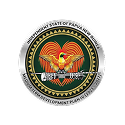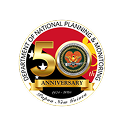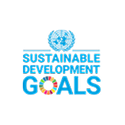Open Government Partnership is a Multi-Stakeholder Global Initiative with over 80 countries and 3000 Civil Society participating. It is a fast-growing Global Organisation with countries all over the world who thinks that through the OGP Process their governments can promote greater transparency, accountability, integrity, and being more responsive to citizens’ needs.
On the 7th May, 2014, at the Asia-Pacific Regional Conference in Bali, Republic of Indonesia, Hon. Rimbink Pato,OBE, MP and former Minister for Foreign Affairs and Trade gave Papua New Guinea’s intention to become an OGP member country. The intention was formally endorsed on the 3rd of September 2015 through a National Executive Council (NEC) Decision No. 285/2015 which also directed to establish the OGP Secretariat under the Department of Foreign Affairs (DFA). Later in the same year, the PNG’s intention to be an OGP member country was accepted and officially announced by the OGP Co-chairs on the 28th of October 2015 at the OGP Global Summit in Mexico.
Since the inception of OGP Initiative in 2014, Department of Foreign Affairs (DFA) had provided the Secretariat Service to the OGP Steering Committee until the OGP National Steering Committee (NSC) decided that the Department of National Planning and Monitoring (DNPM) should provide the PNG OGP Secretariat Service and coordinate the implementation of the Cluster Commitments every two years.
Promote transparency, accountability, information sharing, inclusive development planning, policy formation, and resource allocations to improve service delivery in the country.
OGP promotes the principles of democracy and sets the platform for transparent and accountable practices in government process. This includes having access to vital information, involving citizens to be part of the decision-making process, policy formulation, development planning, budgeting, service delivery and monitoring & reporting. Thus, aligning with the Government’s priority of attaining value for money while delivering goods and services through a scrutinised fiscal management system.
The principles of OGP compliments the spirit of the National Constitution laid down by our forefathers which are further incorporated through several cascading strategies, national policies and development plans such as the Vision 2050, PNG Development Strategic Plan (PNGDSP) 2010-2030, Medium Term Development Plan III & 1v (MTDP) 2018-2022 & 2023-2027, National Anti-Corruption Strategy (NACS) 2010-2030 and many more.
The PNG OGP Secretariat is provided by DNPM under the Policy and Budgets Division of the Policy and Planning Wing. The Secretariat performs the responsibilities of organising National Committee Meetings, taking meeting minutes and most importantly coordinate the implementations of the NAP and report to the Secretary of the Department, National Planning and Monitoring Minister who is also a OGP Minister, Government of Papua New Guinea, OGP Regional Headquarter in Singapore and Head Quarter in Washington DC, USA. The are number of Cluster Commitments PNG OGP implements.
The National Steering Committee (NSC) Meeting is the peak decision-making body for the PNG OGP and the Meetings are held on a quarterly basis. NSC is co-chaired by Government (DNPM) and Civil Society Organisation (PNG Transparency International). PNG OGP Secretariat provides secretariat services to the NSC Meetings. All Cluster Leaders report to NSC Members in its quarterly Meetings using the standard reporting template.
There are Seven (7) Clusters in the OGP initiative, thus, PNG OGP adopted Four Clusters in the first NAP 2018-2020 and six (6) Clusters and Sixteen Commitments, in the second NAP 2022-2024, each of this Cluster has its own leader from both government and CSOs and the meetings are conducted prior to the NSC Meetings.
The 2nd NAP 2022-2024 is designed with a particular focus to PNG’s politically, economically and administratively in relation to citizens’ demand for basic service delivery, while considering the practical realities of actual implementation of the NAP. The implementation of the four Clusters of Commitments in the 1st NAP 2018- 2020 over the last three years has achieved some implementation outcomes of the milestones but also had some challenges and made gradual progress in achieving the 4 commitments’ milestones. The challenges and lessons learnt from the implementation of NAP 2018-2020 have led to the design of the 2nd NAP 2022-2024 to fully achieve the commitments’ outcomes. There were 2 new additional Clusters of Commitments which are Government Integrity and Open Data that were selected during the PNG OGP National Conference on Co-Creation in September 2021.
They are required to conduct more than four meetings in a year. The Decisions of the NSC are further discussed and translated into work plans and implemented. Lead responsible state agency provides the Secretariat service for the Sub-committees. The co-chairs coordinate the implementations of the cluster and commitments and reports to the NSC.
They are required to conduct more than four meetings in a year. The Decisions of the NSC are further discussed and translated into work plans and implemented. Lead responsible state agency provides the Secretariat service for the Sub-committees. The co-chairs coordinate the implementations of the cluster and commitments and reports to the NSC.
They are required to conduct more than four meetings in a year. The Decisions of the NSC are further discussed and translated into work plans and implemented. Lead responsible state agency provides the Secretariat service for the Sub-committees. The co-chairs coordinate the implementations of the cluster and commitments and reports to the NSC.



